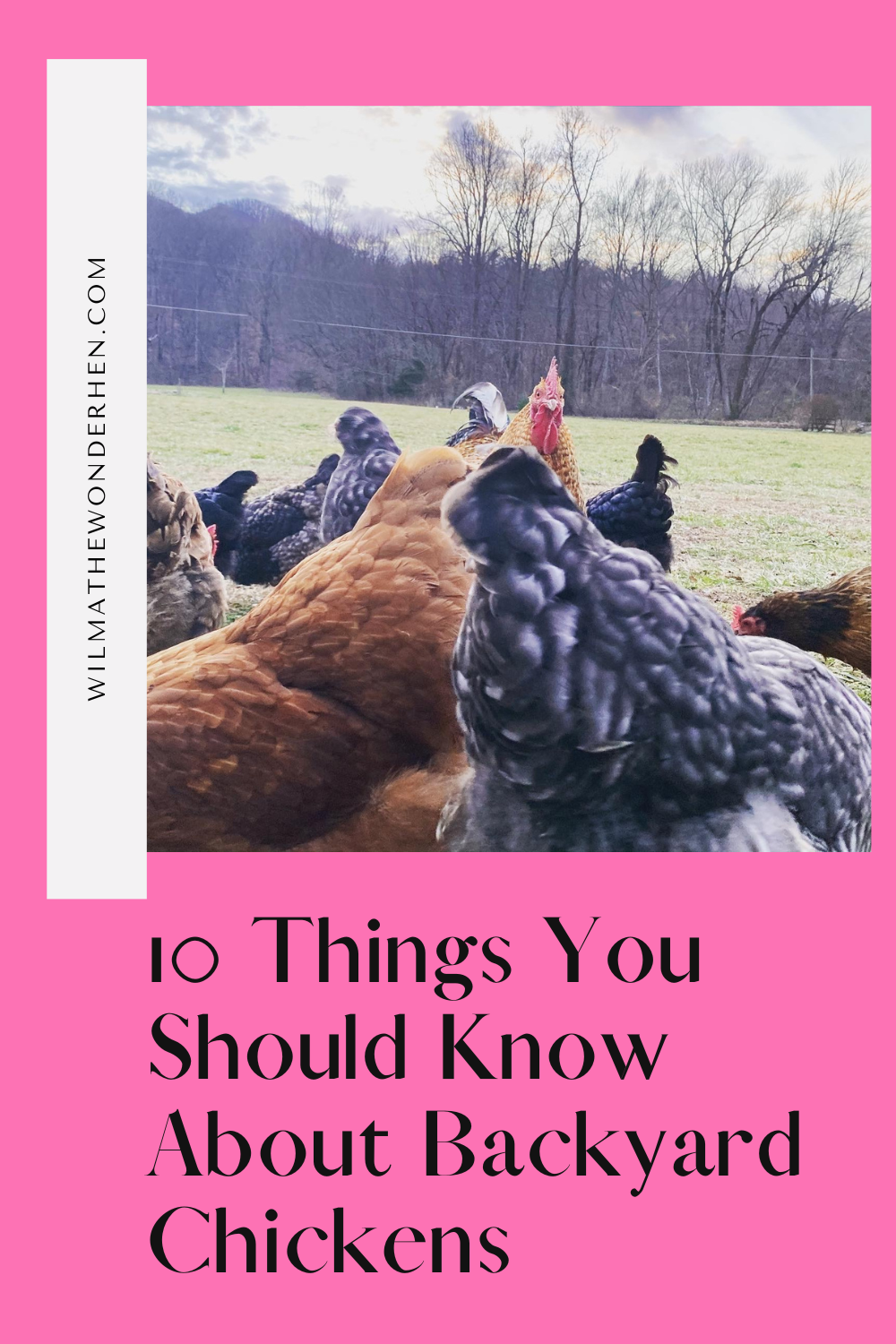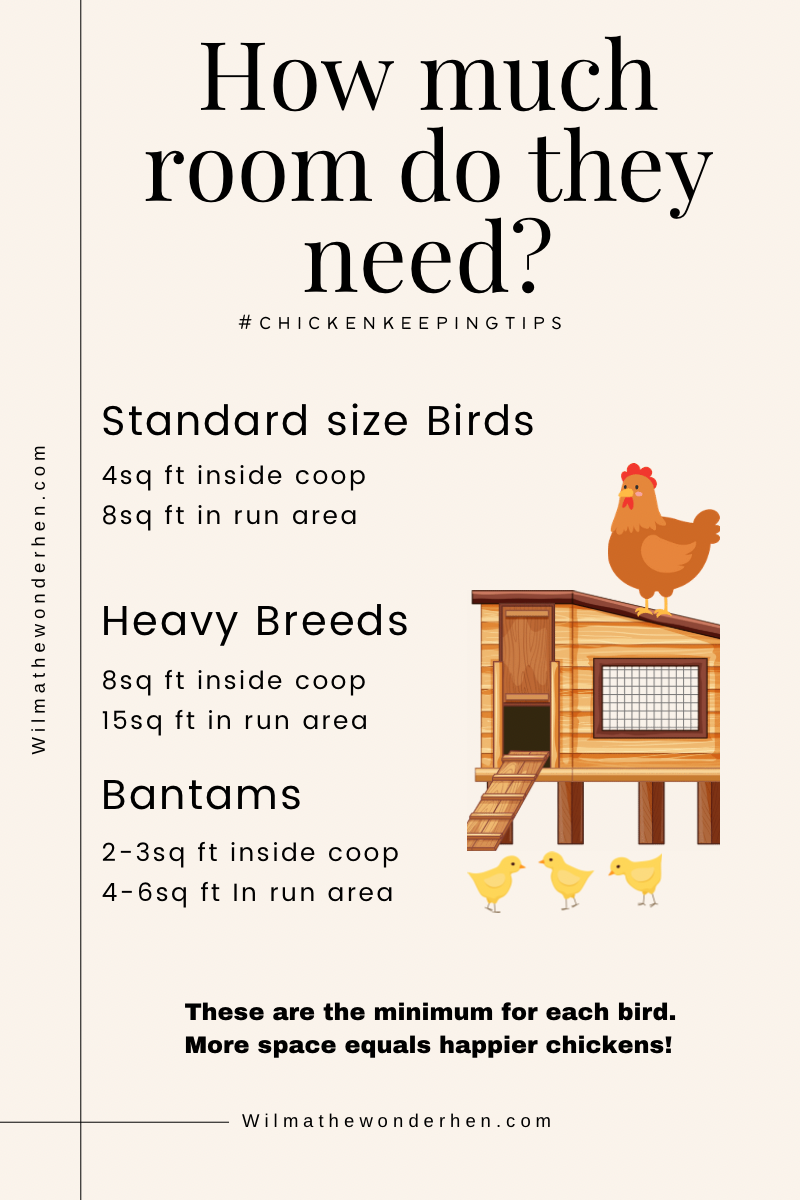10 Things you should know about owning backyard chickens.
With the price of everything rising and the fear of not being able to provide for our families.
Many people are turning to a simpler more sustainable way of life. Not everyone can go out and purchase a large farm and it is really NOT a necessity. You can raise a small backyard flock and I'm here to help you.
Here are a few things to ponder before “adding to cart” all those cute baby chicks!
In no particular order, here are some of my thoughts.
1. Chicken math happens to the best of us. Living in the city or a HOA you more than likely have a limit and a no rooster law. So, choose wisely when selecting chicks. Typically most places will offer straight run (mix of male and female) and sexed birds (pullets/female-cockerel/male) This is never a 100% guarantee of getting exactly what you thought you were purchasing. It's best to have a plan for those unexpected chicks.
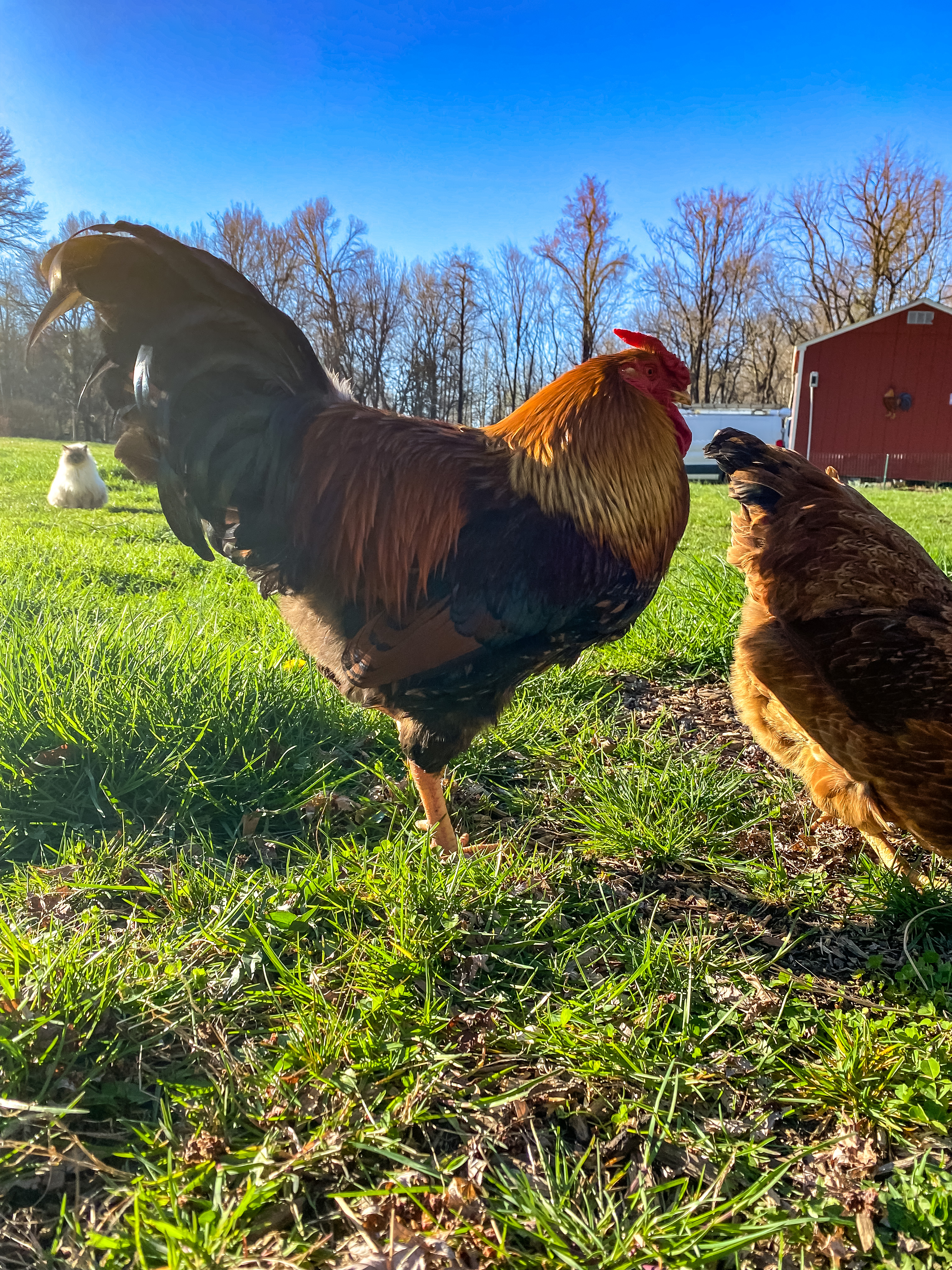
Providing enough room is a requirement. Overcrowding can cause behavior issues, decline in overall health and well being, and a drop in egg production.
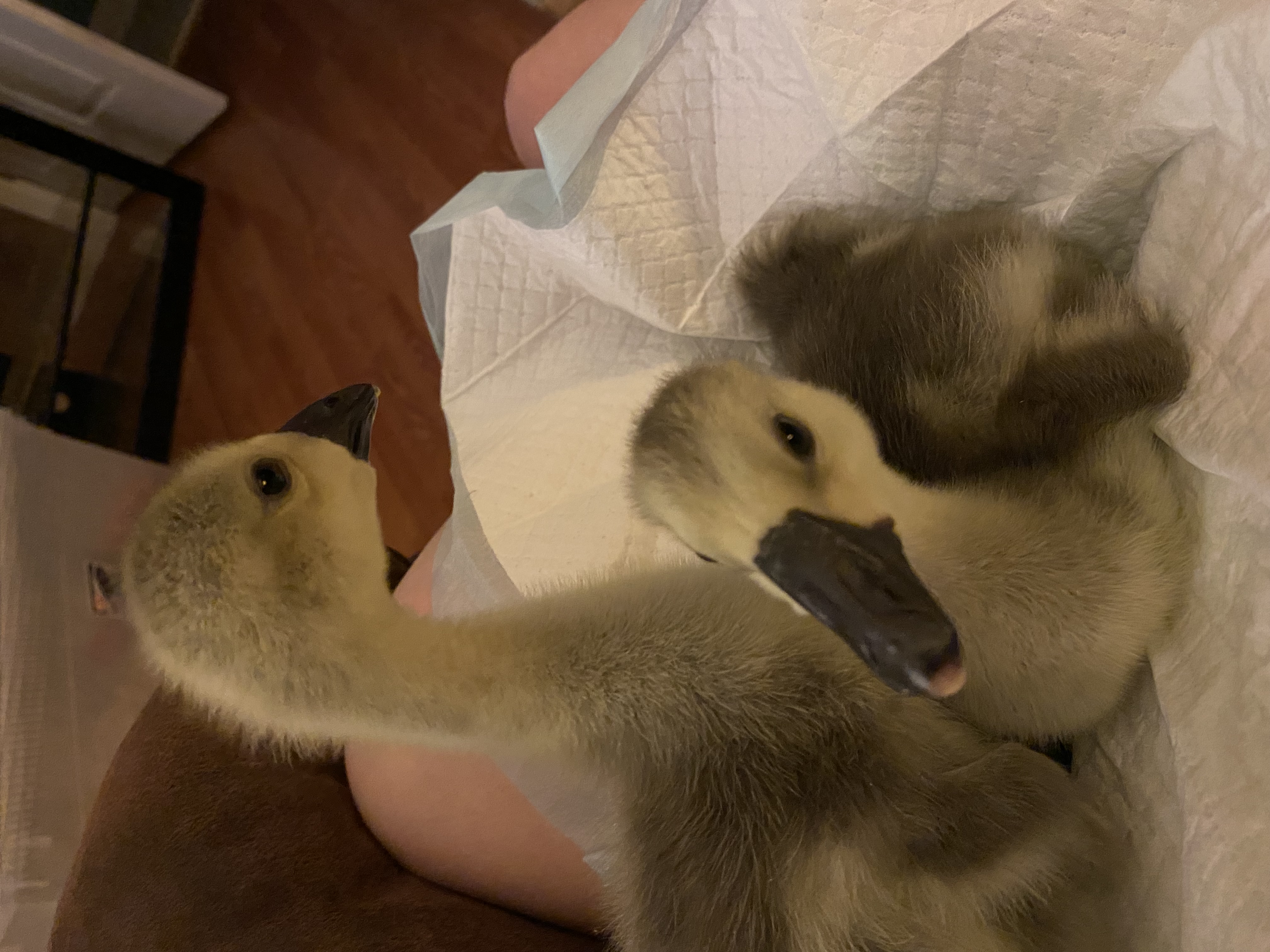 Shelby & Jack week old chinese brown goslings
Shelby & Jack week old chinese brown goslings
Chicks require a certain level of heat. They'll let you know by their behavior if the heat source is working correctly. Chicks will chirp excessively if cold, thirsty, or hungry. But they will also huddle if cold or separate themselves away from the heat source if too hot! So, keep an eye on those little fluff balls!
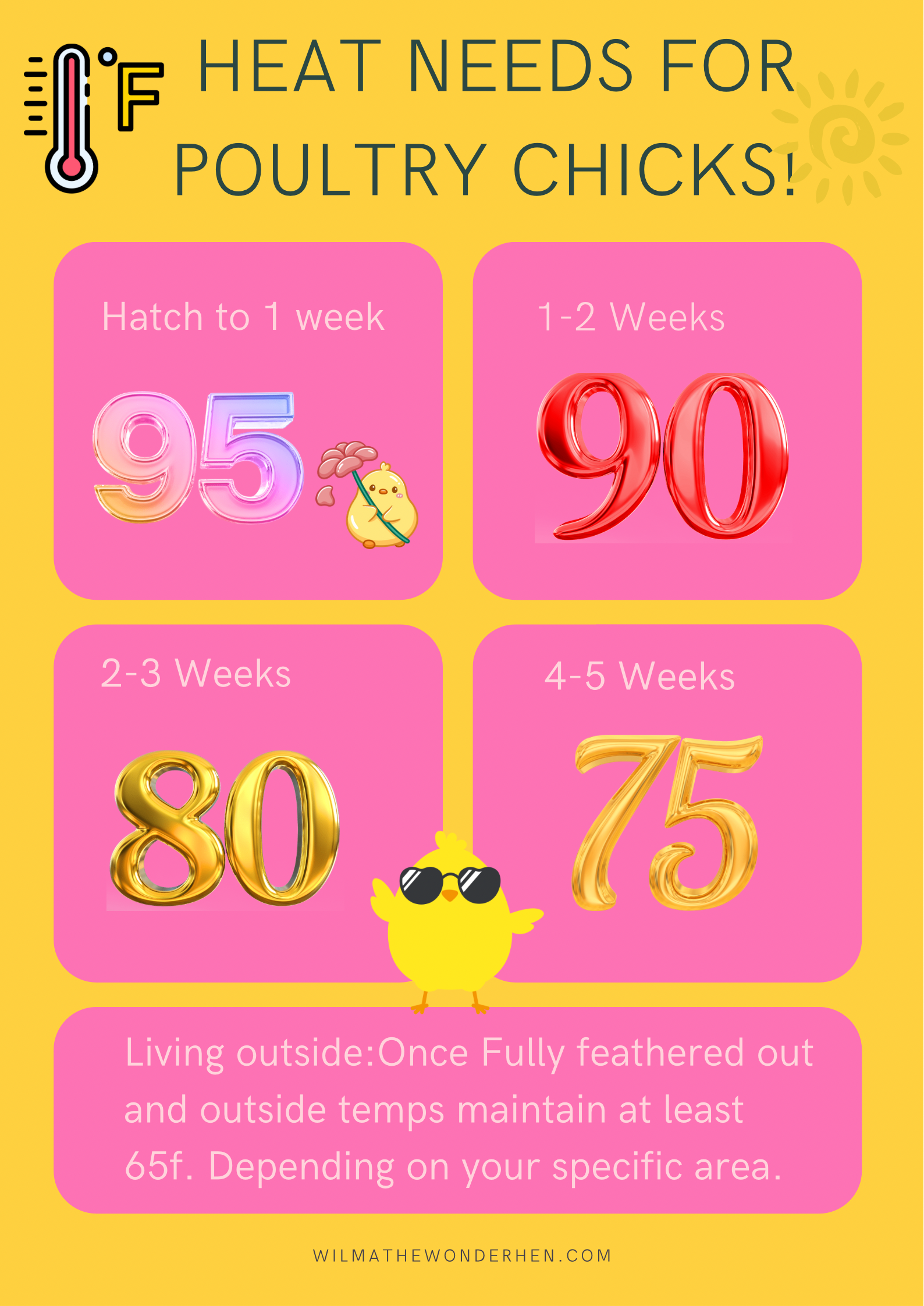
3. Complex social hierarchy (the pecking order can be cruel). Some of those heifers will hate each other for reasons we know nothing about. Having an extra spot to separate an injured chicken or a place for a bully that needs a time out, is one of my top recommendations. We have an ICU unit inside my she-shed. It's quiet, has heat/air, and is a safe respite when needed.
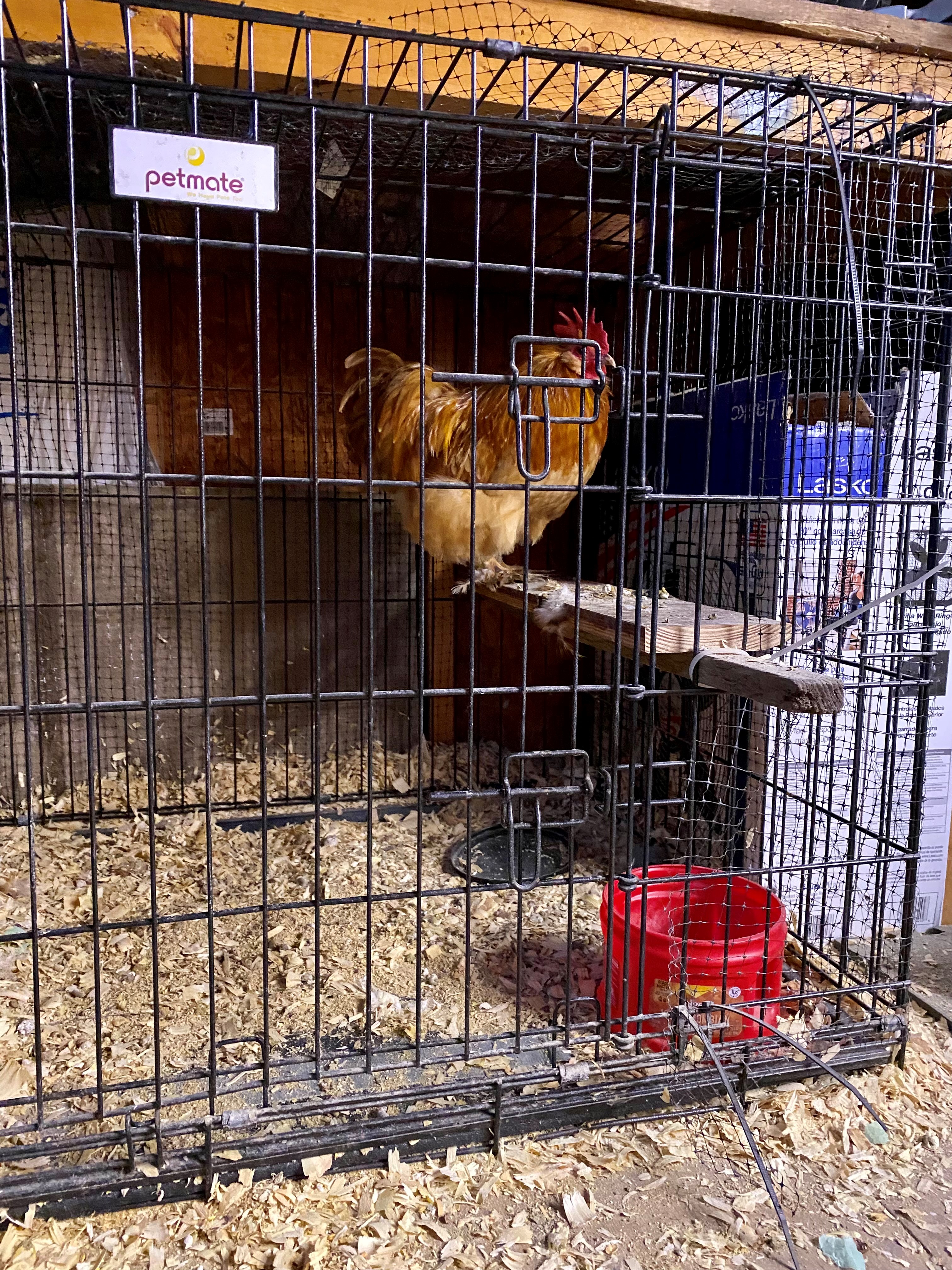 Ranger hanging out in the She-Shed
Ranger hanging out in the She-Shed
4. Everything loves the taste of chicken. Aerial and ground predators are always a concern. Be prepared to have adequate space if you choose to lock them up. Free ranging always comes with a risk. Their coop and run must be secure. It’s a must. I know many chicken owners own livestock guardian dogs, donkeys, or even geese to help provide an extra layer of protection. We do like to free range here and it does come with a risk. But they also have safe places to go if needed and while I’m away. Hardware cloth buried in the ground along the perimeter, large stall matts, overhead netting, and string are just a few ways to keep those chickies safe. But nothing is a for sure guarantee. We've had a couple of hawk attacks here. These attacks happened right in front of me. Now, does that mean we should never let them out? I still let my flock out. I do this during supervised time and allow them to forage on our 7 acres of land. Thankful those two attacks didn't end in death for my birds. We realize it's not for everyone. It's your flock and you get to decide what's best for them.
5. They require a proper balance of nutrients. Chick starter—layer feed—flock raiser, depending on your species of bird. What brand you feed is a personal choice. We’ve always used Purina. They offer all stages and species. That’s just our preference. There are so many different brands to choose from. Do a little research and do what's best for your budget and flock.
6. Learn, learn, and learn some more. Be mindful where your information comes from. Educate yourself on basic chicken anatomy and illness. Make contact with a local veterinarian. Even if they do not specifically care for chickens. They might be willing to help in an emergency situation, or with fecal floats. We know that Avian veterinarians are hard to find. Please educate yourself and have a plan for when a tragedy occurs. Are you able and willing to cull a sick animal? These are a few of my favorites: PoultryDVM Merck Vet Manual Gail Damerow Blog
7. Chickens poop everywhere. They’ll sling that mess wherever their little fluffy butts want. Keeping a clean coop is a big priority around the “Heifer Farm.” Spending a few minutes each day to tidy things up really does cut down on the big clean outs we do a few times a year. Big Fall and Spring cleanout lends to a lot of extra time for repairs, dusting, repainting, touch ups, and pressure washing.
8. Farm help? Can you leave for a vacation? Have someone lined up that you trust. We’ve a large flock and many different animals here. Chickens, quail, geese, dogs, cats, and soon to be a heifer calf and goats. Taking a break together with Rob The Builder is only a dream. We've not taken a vacation together in over 10 years. We work side-by-side on farm projects and help each other to build the life we want. I joke that our vacations are spent building fences and coops! LOL!
9. Put together a chicken first-aid kit! You can guarantee at some point in your flocks lifetime you'll need to treat an illness or injury. Conducting a "Chicken Check-Up” on the regular will help you notice an illness or injury sooner. Chickens will hide any illness from fear of being prayed on by other members of the flock or a predator. I'll show you mine on a separate blog post soon!
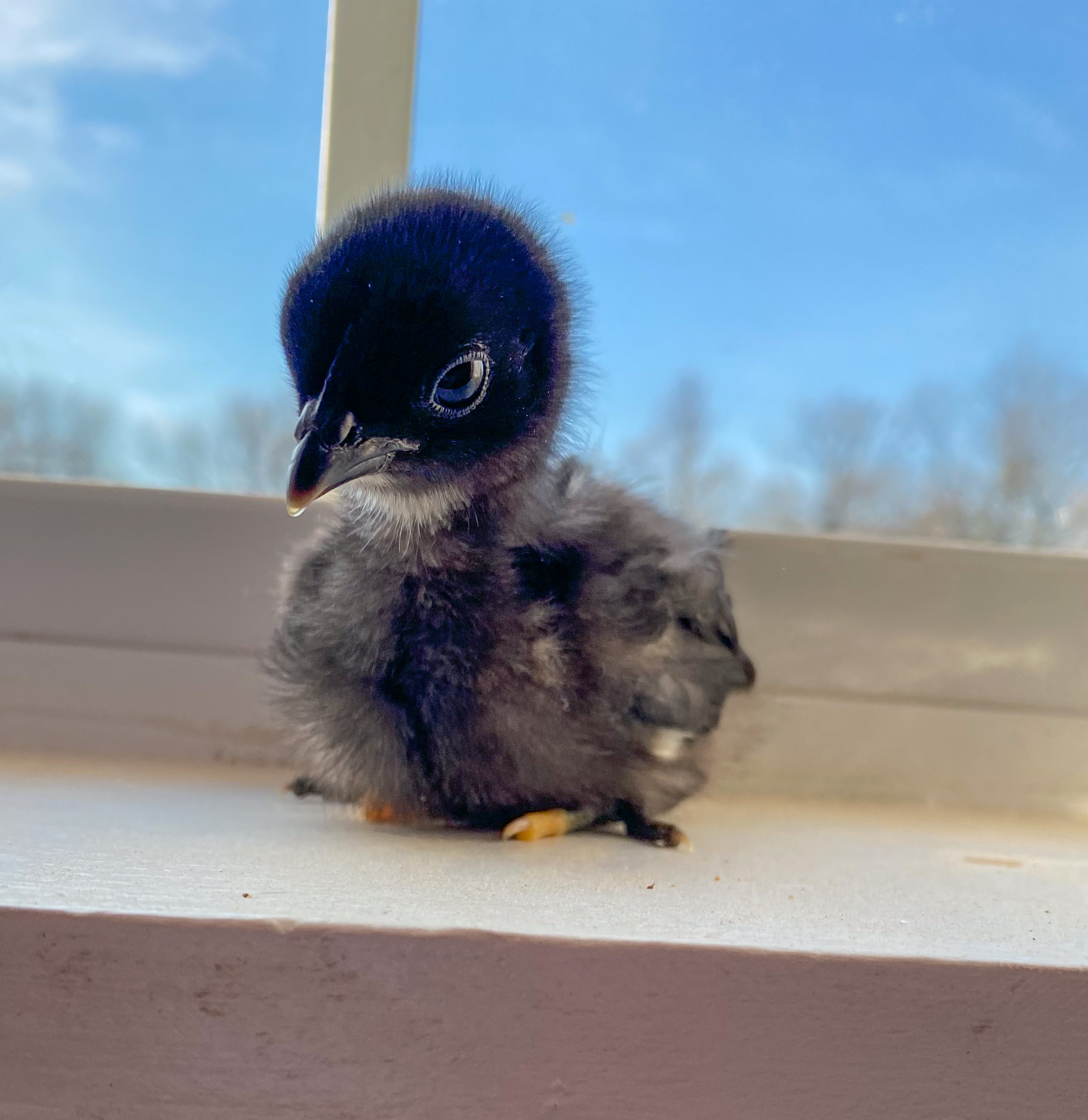
10. We're obsessed with colorful egg colors over certain breeds. Now, I do love the variety of breeds in our flock. We also would love to add some heritage breeds next year. BUT, those colorful eggs from my olive eggers and easter eggers are hard to beat! The fun part is you can own those higher production hens and add in some of the colorful egg layers!
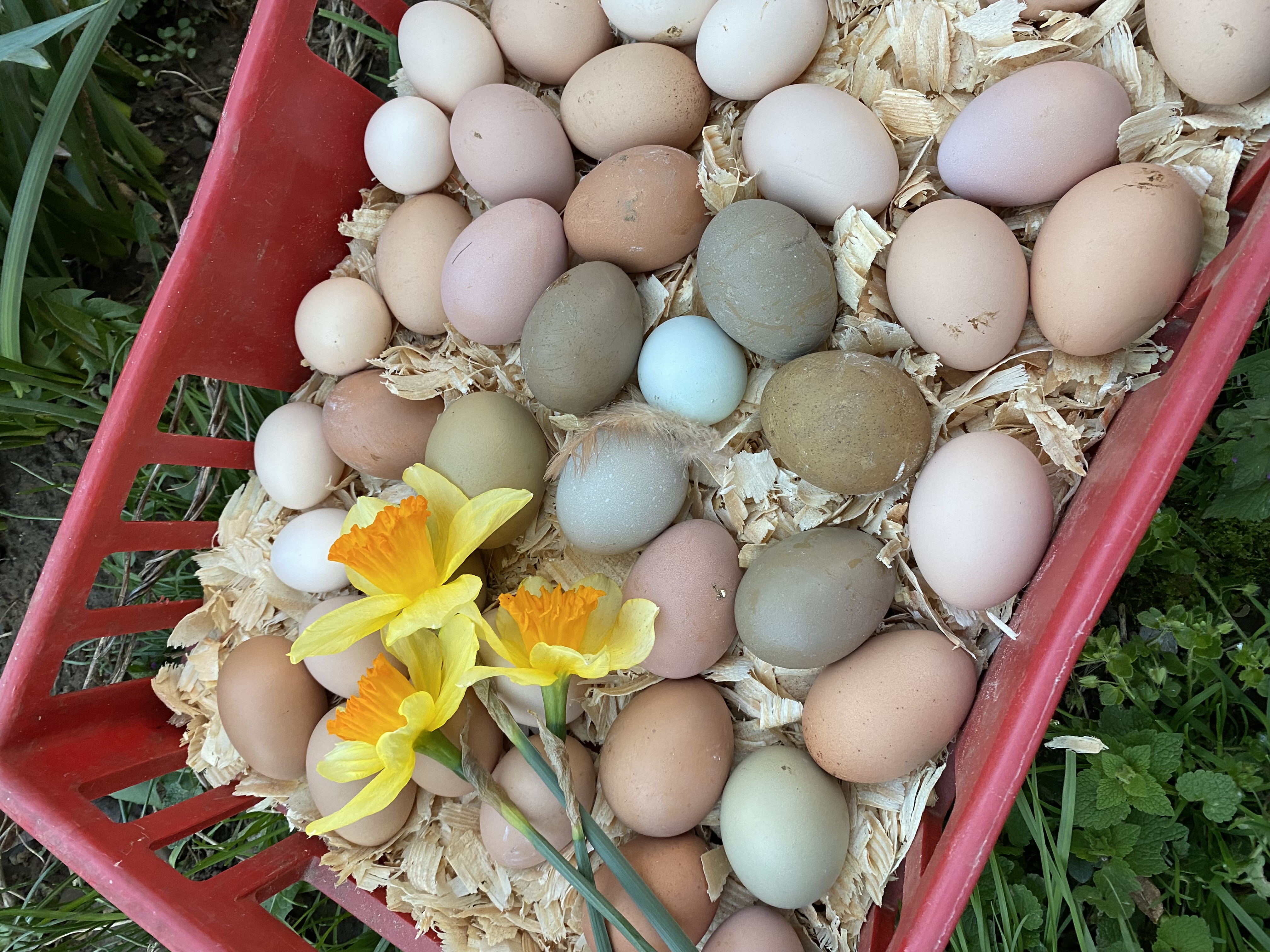 Thank ladies!
We want to welcome you into the chicken community! There is a lot to learn. Us old timers are still learning. Science is changing constantly when it comes to backyard animals and we're open to learning right along side of you! You can always send us an email at wilmathewonderhen.com and we will try our best to help you!
Thank ladies!
We want to welcome you into the chicken community! There is a lot to learn. Us old timers are still learning. Science is changing constantly when it comes to backyard animals and we're open to learning right along side of you! You can always send us an email at wilmathewonderhen.com and we will try our best to help you!
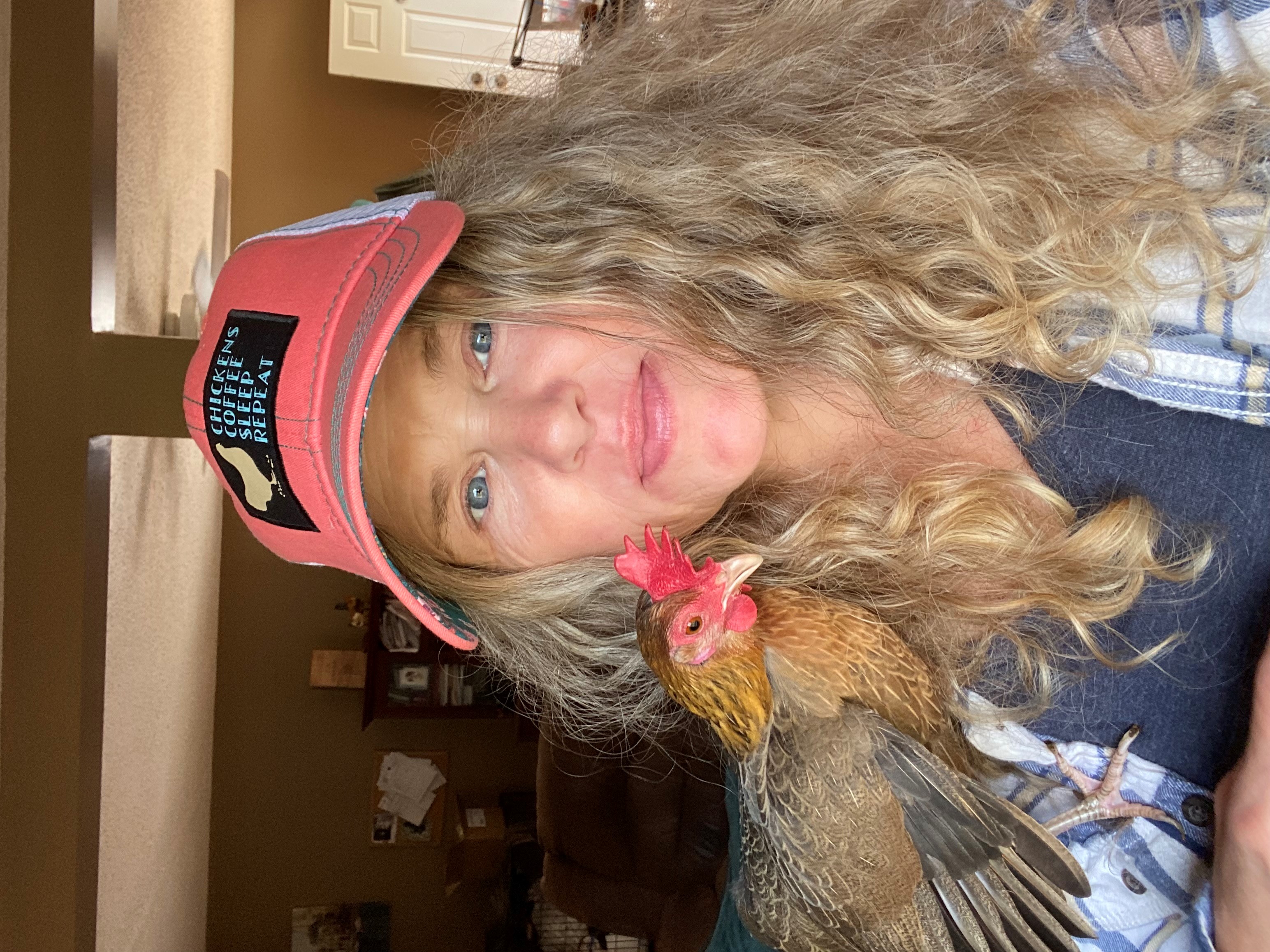 Much love,
Mel & The Holler Gang
Much love,
Mel & The Holler Gang
